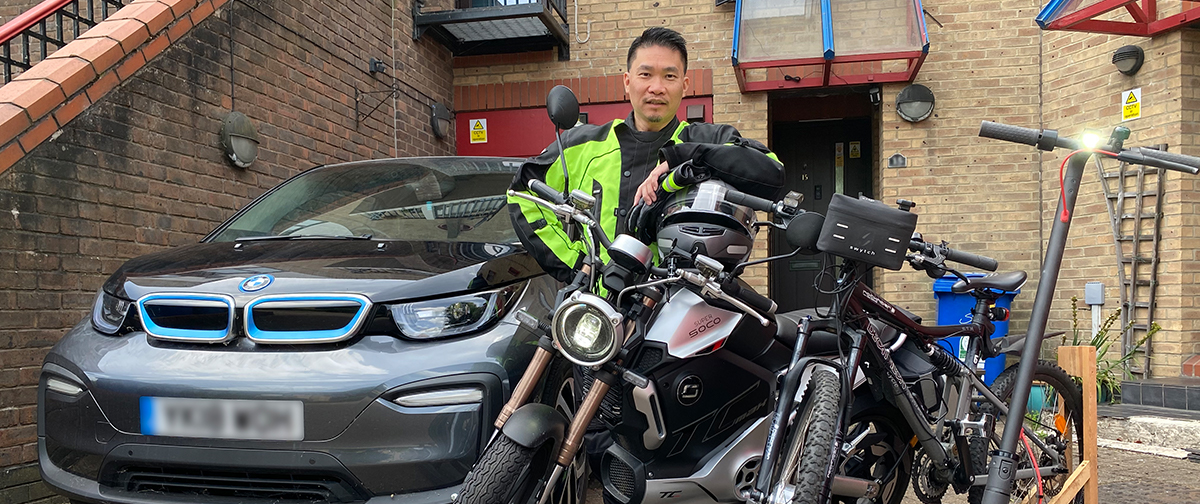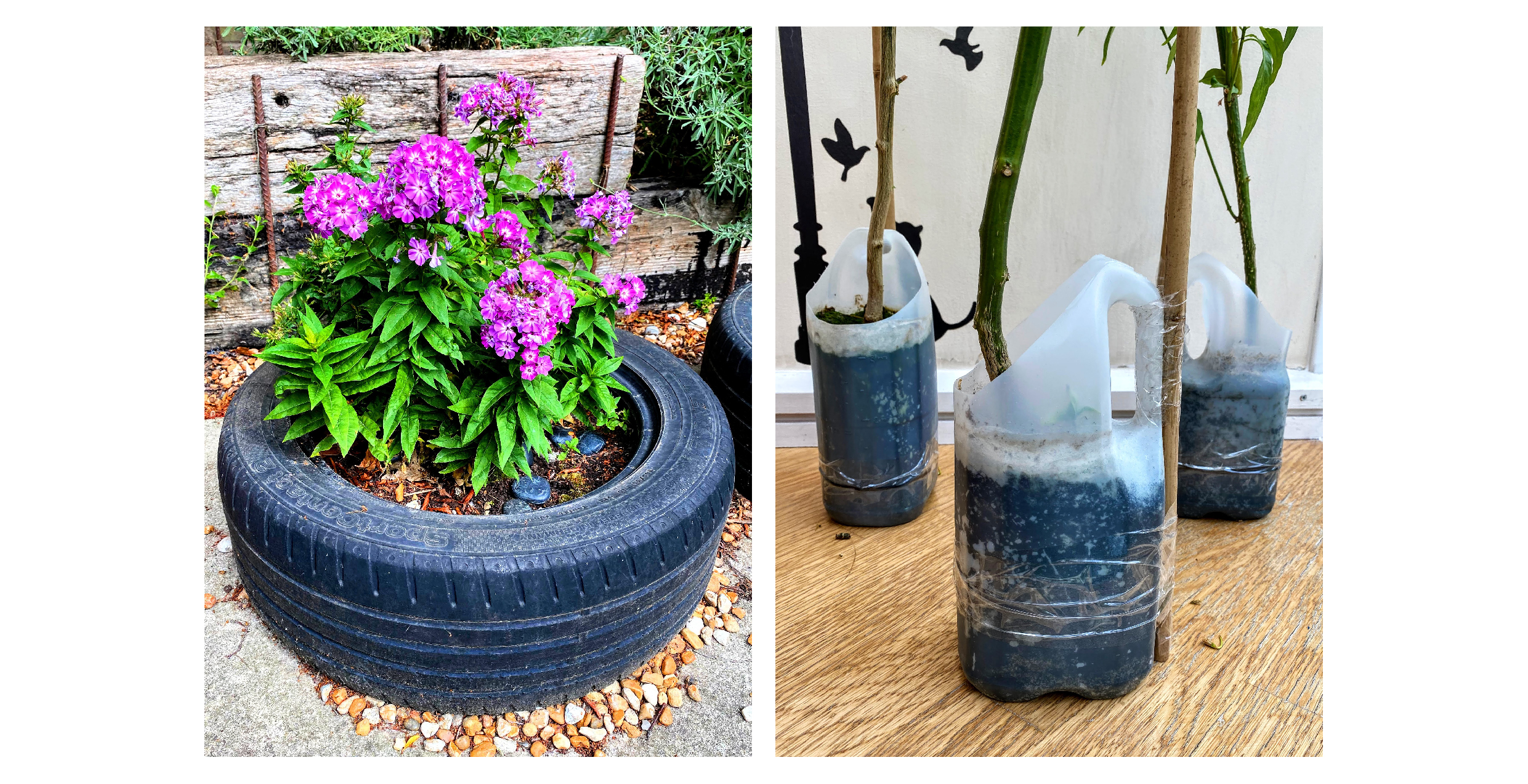
17 August 2022
Walker Crips is committed to reducing our carbon footprint across our business, by engaging our staff, and continually reviewing our business practices, operations and supply chain. We asked our CEO, Sean Lam, to share his thoughts on our firm’s approach to sustainability, and also some of his own practices when it comes to reducing his carbon footprint.
Let’s start with the obvious question. Why is sustainability important, and why should we care about our carbon footprint?
If we want our children to see tomorrow, like we saw yesterday, then we mustn’t screw up today. We must safeguard our planet for our children, and for our children’s children.
How has Walker Crips improved its environmental performance?
We consciously began our journey in small steps back in 2007 when we moved offices. We installed PIR lighting, refurbished old doors (surprisingly, they cost the same as new!), and embarked on a de-papering exercise. In 2013, we started increasing our use of cloud services which resulted in the long-term reduction of our server room size by 75%. Fewer on-site servers meant less heat emission, air conditioning and electricity. Our lighting is low-energy consumption LEDs, and still with PIR, auto-turning off when motion is not detected.
Tell us a little bit about Walker Crips’ new “green” action plan and some of the new measures you will be adopting firmwide.
Hybrid working is here to stay, and we are currently merging some of our offices to better utilise our available square footage, significantly reducing our carbon footprint. We turned off excess appliances like refrigerators, dishwashers, etc. It may seem minuscule, but it all adds up. We are persuading the landlords of our buildings to sign up with “green” energy suppliers using sustainable resources. One of our mantras is to “Simplify and digitise”; digitisation increases efficiency and reduces the drain on resources. We engaged carbon emission auditors to determine our carbon output, and our goal is to reduce it every year. Time is running out for our planet, so it needs to be more like a sprint, and less like a marathon.
You are a proponent of electrification. What is the story behind that?
I have been a petrolhead since I was knee-high. V12 Jaguars, Nortons, Le Mans, F1, Indycar, Nascar, MotoGP, … I love them all. The noise, the smell, the speed. But I have also come to enjoy the weirdly silent Formula E. We had a Touran and a Golf but after the Volkswagen emission scandal, I decided it was a good time to switch to electric. My wife has an i3 and me an electric motorbike. I do miss the sound and feel of a combustion engine, but not the trips to the petrol station. Having peak torque from zero is great fun too.
What is your take on those who say that electric cars are not environmentally friendly?
I agree! Until someone invents a car that absorbs or runs on CO2, all vehicles will be net polluters; from manufacturing, fitments and accessories, to battery disposal. Grid power may not be 100% from renewable or sustainable sources either. But we must start somewhere. Of course, we should walk and cycle as much as possible, but if we need a vehicle, then I would suggest going electric if we can.
How can we do our part in reducing our carbon footprint?
Refuse - Avoid buying harmful, wasteful or non-recyclable products, e.g. unnecessary product packaging and single-use plastics. Don’t need, don’t buy. Less painful on the pocket too.
Reduce - Reduce the use of harmful, wasteful, and non-recyclable products so that fewer of them end up in landfills. Use the minimum required to avoid unnecessary waste. Don’t need, don’t print. Reduce single-use plastics, plastic packaging, and styrofoam cups.
Reuse - Get rid of the "buy and throw-away" mindset. Use what you have as often, and for as long, as you can.
Repair - Try to repair things before tossing them out.
Repurpose - If something is no longer useful for its original purpose, think creatively of ways it can be broken down and reconstituted as something else. I am a big fan of upcycling!
Rot - Compost if you can, try not to let your rubbish end up in landfill.
Recycle - Make recycling your last step, after going through all the “Rs” above.
We must purposefully and actively practise the seven “Rs” at home and in the office to make them automatic and habitual.
Share with us some simple ideas of how you put the “Rs” into practice at home.
Plastic is one of mankind’s best, and also worst, inventions. Look around you, plastic is everywhere. Without plastic, most things would stop functioning. Your monitor would fall apart, your keyboard and mouse would be reduced to nothing but a couple of batteries. Plastic can take between 500 to 1,000 years to decompose. It does not disappear, it merely breaks down into smaller and smaller parts. It is both a blessing and a curse. Enzymes are being created to break down plastic but regardless, I try to upcycle. I cut the top off plastic milk bottles and use them as pots for my chilli plants. Plastic containers from takeaways or food deliveries are retained for future use. Armed with a Stanley knife and a heat gun, you can create many useful things from old, unwanted plastic. I also repurpose my old car tyres as flower pots, and I try to remember to bring my own travel cup when buying coffee. If you have children, ask them. They will likely know more than we do.

“If we go on the way we have, the fault is our greed and if we are not willing to change, we will disappear from the face of the globe, to be replaced by the insect.”
Jacques-Yves Cousteau
Important Note
No news or research content is a recommendation to deal. It is important to remember that the value of investments and the income from them can go down as well as up, so you could get back less than you invest. If you have any doubts about the suitability of any investment for your circumstances, you should contact your financial advisor.